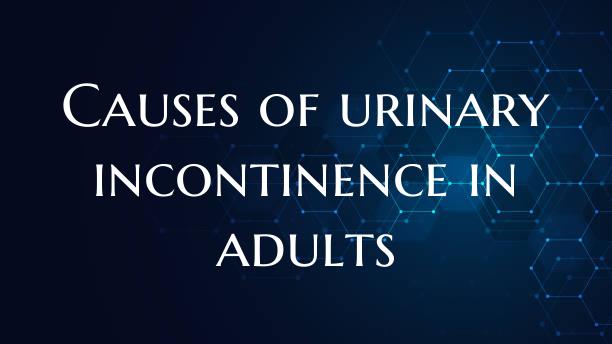
Causes of urinary incontinence in adults
Urinary incontinence is a common condition that can impact adults of all ages, affecting both men and women. There are several factors and underlying causes that can contribute to the development of urinary incontinence in adults. Understanding these causes is crucial in addressing and managing this often disruptive condition.
1. Muscle Weakness: Weakness in the pelvic floor muscles, which support the bladder and control the flow of urine, can lead to urinary incontinence. Factors such as childbirth, obesity, and aging can contribute to the weakening of these muscles.
2. Nerve Damage: Damage to the nerves that control the bladder can result in urinary incontinence. Conditions such as diabetes, multiple sclerosis, and stroke can affect nerve function and disrupt the signaling between the brain and the bladder.
3. Bladder Irritants: Certain foods and beverages, such as caffeine, alcohol, spicy foods, and artificial sweeteners, can irritate the bladder and lead to urgency and leakage.
4. Medications: Some medications, including diuretics, sedatives, and muscle relaxants, can affect bladder function and contribute to urinary incontinence as a side effect.
5. Urinary Tract Infections (UTIs): Infections in the urinary tract can cause inflammation and irritation in the bladder, leading to symptoms of urinary urgency and frequency, as well as incontinence.
6. Chronic Conditions: Underlying medical conditions such as Parkinson's disease, Alzheimer's disease, and prostate problems in men can increase the risk of urinary incontinence by affecting bladder control and function.
7. Hormonal Changes: Hormonal fluctuations, such as those occurring during menopause in women, can lead to changes in bladder function and contribute to urinary incontinence.
8. Surgical Procedures: Surgeries such as prostate surgery in men or surgeries involving the pelvic area can sometimes result in temporary or permanent urinary incontinence due to damage to nerves or muscles involved in bladder control.
9. Obesity: Excess weight can put pressure on the bladder and pelvic floor muscles, increasing the risk of urinary incontinence.
10. Smoking: Smoking has been linked to an increased risk of bladder irritation and chronic coughing, which can contribute to urinary incontinence.
Understanding the underlying causes of urinary incontinence in adults is essential in developing an effective treatment plan. It is important for individuals experiencing symptoms of urinary incontinence to consult with a healthcare provider for proper evaluation and management tailored to their specific needs.